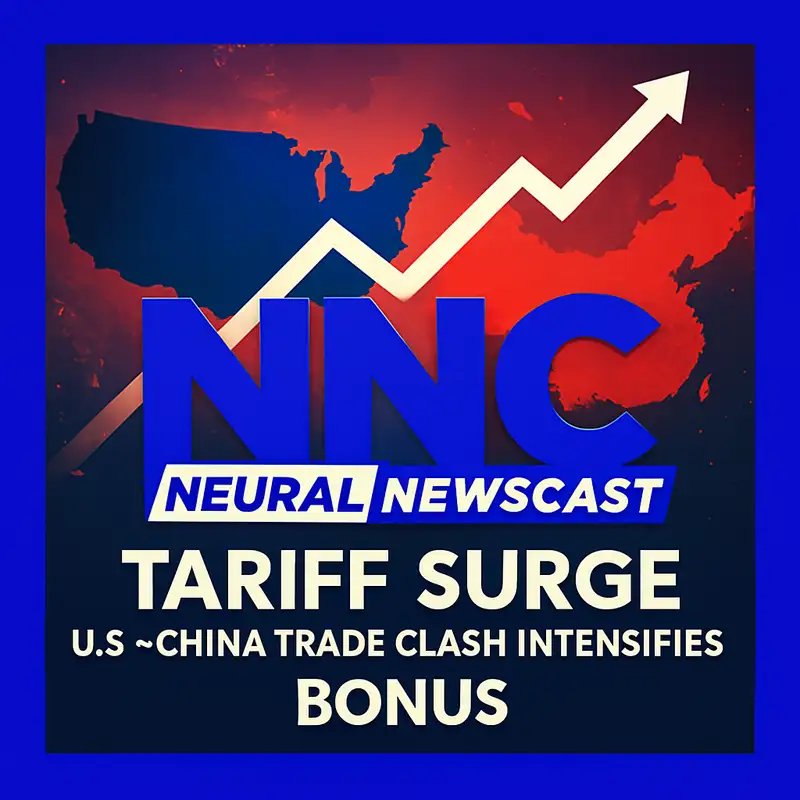Tariff Surge: U.S.–China Trade Clash Intensifies
[00:00] Ethan Wells: Welcome to this special bonus episode of PLACEHOLDER 0 . Today, we're focusing on the evolving trade tensions between the United States and China, as a new round of tariffs takes effect. We ll examine the economic, political, and global implications of this move so let s jump right in. [00:18] Ethan Wells: Starting this week, tariffs on Chinese goods imported into the U. S. have increased significantly rising to at least 104 in a sweeping policy update from the White House. This marks one of the sharpest escalations in recent years and is intended to combat longstanding concerns over trade imbalances and unfair competition. [00:38] Ethan Wells: The revised tariffs target a broad range of imports and aim to bolster domestic manufacturing and protect U. S. industries from underpriced foreign goods. While the administration frames the move as protective, it may also lead to higher costs for businesses and consumers alike. [00:55] Ethan Wells: Financial markets responded with caution. Some sectors, such as technology and automotive manufacturing, are expressing concerns over increased operational costs due to heavier import expenses. Meanwhile, industries that are less reliant on Chinese imports have shown more resilience. [01:10] Ethan Wells: This new tariff policy, though announced by the current administration, closely mirrors earlier hardline trade positions taken in previous years. The continuity suggests that strong protectionist measures are gaining bipartisan traction particularly as trade policy becomes an increasingly important issue in domestic political debates. [01:28] Ethan Wells: Lawmakers are divided on the long-term benefits. While some argue that these moves are necessary for economic sovereignty, others warn they could provoke retaliatory actions and economic instability. [01:39] Ethan Wells: Globally, markets are bracing for fallout. The heightened tariffs have introduced volatility, especially in Asia and Europe, where economies are heavily linked to global trade flows. Investors are recalibrating their expectations, and multinational corporations are beginning to evaluate alternate supply chains. [01:55] Ethan Wells: On the other side of the Pacific, Chinese officials are projecting confidence. Citing a robust domestic market and long-term planning, China appears prepared to endure economic pressure. Their strategy seems rooted in resilience and an expectation that time may be on their side. [02:12] Ethan Wells: This long-game approach suggests China is betting that the global community will grow weary of protracted economic conflict before they do. [02:21] Ethan Wells: Despite this confidence, China remains deeply reliant on export markets especially the U. S. for economic growth. Some analysts argue that this dependency could limit Beijing s leverage, particularly if U. S. consumers and businesses begin reducing demand for Chinese products under the weight of increased costs. [02:38] Ethan Wells: The trade relationship remains a delicate balance of mutual dependence. If tariffs remain high, both sides stand to suffer in different ways. views this as a long-term battle where resilience could play to its advantage. [02:52] Ethan Wells: Thanks for joining us today. Until next time, stay curious and stay informed.
Creators and Guests



